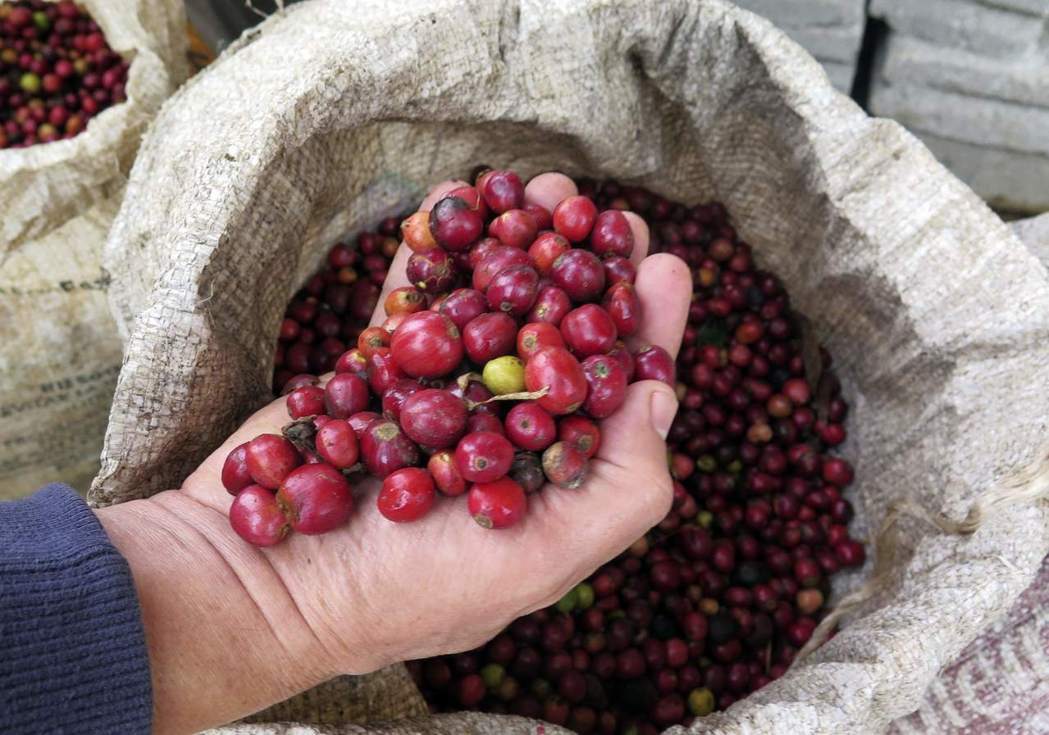The reappearance of the holy baby phenomenon may have an impact on the commodity market.
Due to the rising surface temperature in the Pacific Ocean, the El Nino phenomenon may reappear this year, posing a potential threat to several poor and backward countries in the Pacific, the Australian Meteorological Office said on the 11th. At that time, agricultural products in Asia and Africa, such as robusta coffee beans, granulated sugar, cocoa beans and palm oil, may once again face tight supply and demand.
Since the beginning of this year, meteorological units around the world have generally predicted that there will be no climate anomalies this year, the Wall Street Journal reported. However, all forecasting models used by the Australian Meteorological Office suggest that the baby phenomenon is likely to make a comeback this year or early next year, pointing out that ocean surface temperatures in parts of the eastern Pacific are already 1 degree Celsius (1.8 degrees Fahrenheit) higher than the long-term average.
The government meteorological agencies of the United States and Japan also predict that the holy baby phenomenon is threatening to be promoted to high school, with a probability of more than 50%.
As the chances of the Holy Baby phenomenon increase this year, analysts have focused on the risks facing agricultural markets, particularly in Asia and Africa, such as robusta coffee beans, sugar, cocoa beans and palm oil.
During the Holy Baby phenomenon in Southeast Asia between 2015 and 2016, there was a widespread drought, which led to reduced production of coffee, palm trees and sugar cane, palm oil hit a four-year high last year, and the price of Robasta coffee beans soared by 50 per cent.
Societe Generale, the French bank, pointed out in its latest research report that the timing of the formation of the holy baby phenomenon will be critical because "it will strain the supply and demand of commodities, especially soft commodities".
However, there is still no effective method to predict the severity of shock. According to the Australian Meteorological Office, a total of 27 holy babies have been observed so far in 1900, but only 18 have caused widespread droughts in Australia.
The US Climate Forecast Center (US Climate Prediction Center) pointed out on its website that the phenomenon of Holy Baby comes immediately after the phenomenon of anti-Holy Baby, which is extremely rare. The previous anti-baby phenomenon just ended in January this year.

The price of Robasta coffee beans (Robusta) soared 50 per cent last year as a result of the widespread drought in Southeast Asia caused by the previous holy baby phenomenon. (photo / Reuters)
Important Notice :
前街咖啡 FrontStreet Coffee has moved to new addredd:
FrontStreet Coffee Address: 315,Donghua East Road,GuangZhou
Tel:020 38364473
- Prev

It is the coffee shop that shocked Modu attracted Liu Shishi and Song Xi.
I believe Xiao Xiang fans are no stranger to Coco Caf, a time-limited coffee shop for Miss Chanel Cocoa, which has already made its debut in Dubai, Tokyo and Toronto. April 12, it finally arrived in Shanghai, will be open until April 23, a total of 12 days, yes! It's in the form of a flash, because it disappears into thin air after April 23, as if it never appeared. To talk about Shanghai
- Next

Coffee and citrus fruits are bad for teeth? These tricks should not be frightened.
Dentists suggest cleaning your teeth immediately after drinking coffee, or gargling with water after drinking coffee. [6 major foods bad for teeth] 1. Coffee is an acidic drink, which is disadvantageous to the enamel of teeth for a long time. Coffee is a deeply pigmented drink, which is easy to deposit on the surface of teeth and form tooth stains. Enamel is easy to be eroded if it comes into contact with acid for a long time. Dr Wong Yiu-hui
Related
- Can I make coffee a second time in an Italian hand-brewed mocha pot? Why can't coffee be brewed several times like tea leaves?
- Hand-brewed coffee flows with a knife and a tornado. How to brew it? What is the proportion of grinding water and water temperature divided into?
- What is the difference between Indonesian Sumatra Mantinin coffee and gold Mantinin? How to distinguish between real and fake golden Mantelin coffee?
- What does bypass mean in coffee? Why can hand-brewed coffee and water make it better?
- Unexpected! Ruixing Telunsu lattes use a smoothie machine to foam milk?!
- % Arabia's first store in Henan opens into the village?! Netizen: Thought it was P's
- Does an authentic standard mocha coffee recipe use chocolate sauce or powder? Mocha Latte/Dirty Coffee/Salty Mocha Coffee Recipe Share!
- What is the difference between Vietnam egg coffee and Norway egg coffee? Hand-brewed single product coffee filter paper filter cloth filter flat solution!
- What is the difference between sun-cured and honey-treated coffee? What are the differences in the flavor characteristics of sun-honey coffee?
- How to make Italian latte! How much milk does a standard latte use/what should the ratio of coffee to milk be?

